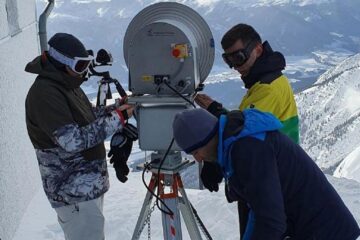EndoMark – Transient selectable marker system in plants

Selection marker systems are indispensable tools in the production of genetically modified organisms (GMOs). Since the efficiency of plant transformation is rather low, there is a strong need for reliable markers that help to isolate the few successfully transformed plants. Most commonly used selection markers consist of bacterial genes that confer resistance against different types of antibiotics, e.g. kanamycin or hygromycin or against herbi-cides.
In addition the constitutive over-expression of a specific gene by placing it under the control of a constitutive ex-pressing promoter may lead to undesirable impacts on metabolism and pleiotropic effects in general. To solve these problems the inventors developed a new selection system based on a chimera of a germination dependent promoter and an endogenous plant resistance gene. The system allows highly specific expression of the resistance marker limited to the germination phase of oil seed plants. Thus it may contribute to improved safety and public acceptance of genetically modified plants like canola. The over-expressed gene Uridine hydrolase 1 (URH1) encodes a component of the plant nucleotide degradation pathway which catalyses the hydrolase reaction of the pyridine nucleoside uridine into its base uracil and ribose. Moreover, plants over-expressing Urh1 show a higher resistance towards increasing concentrations of 5-fluorouridine (5-FD) allowing them to survive under condi-tions which are not permissive for wild-type plants. The combination of the germination phase specific, tran-siently active plant promoter and the cDNA of Urh1 en-ables an early mutant selection and minimises the occur-rence of pleiotropic effects.
Further Information: PDF
PROvendis GmbH
Phone: +49 (0)208/94105 10
Contact
Dipl.-Ing. Alfred Schillert
Media Contact
All latest news from the category: Technology Offerings
Newest articles

Uranium-immobilizing bacteria in clay rock
Microbial reduction reduces mobility of uranium compounds. When designing repositories for high-level radioactive waste in deep geological layers, various factors must be carefully considered to ensure their long-term safety. Among…

6G mobile communications tested in the Alps
Researchers at the University of Stuttgart achieve strongest connection. Making emergency calls even in remote areas and transmitting large amounts of data in real time? This is possible with the…

Optimising inventory management
Crateflow enables accurate AI-based demand forecasts. A key challenge for companies is to control overstock and understock while developing a supply chain that is resilient to disruptions. To address this,…

















